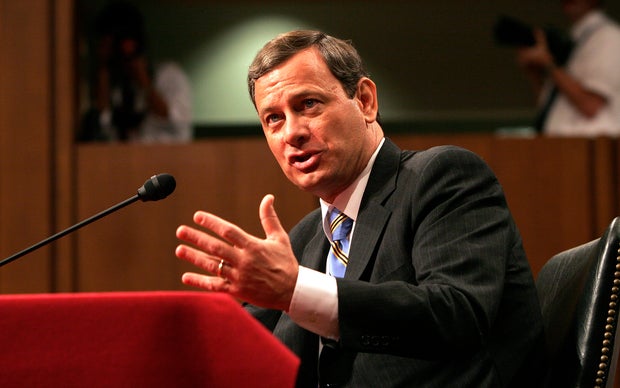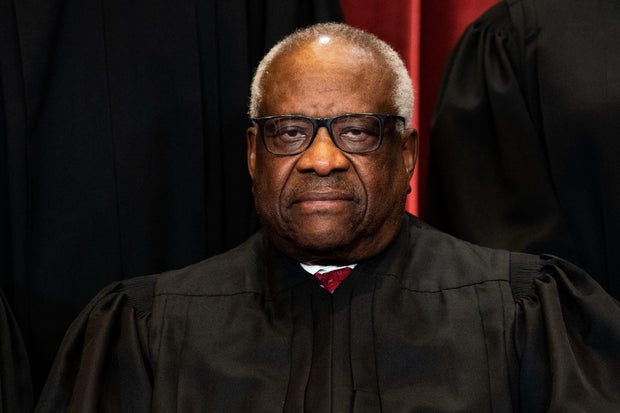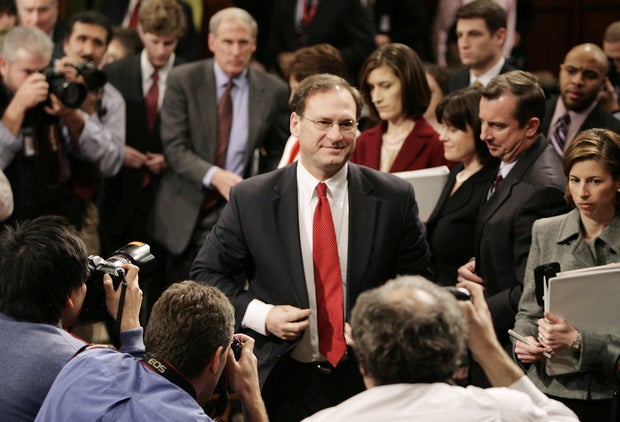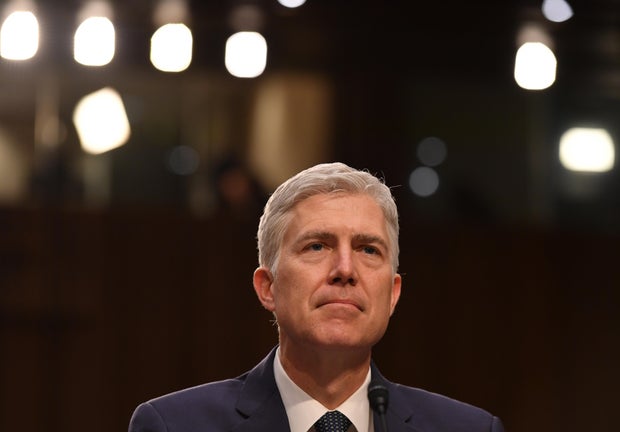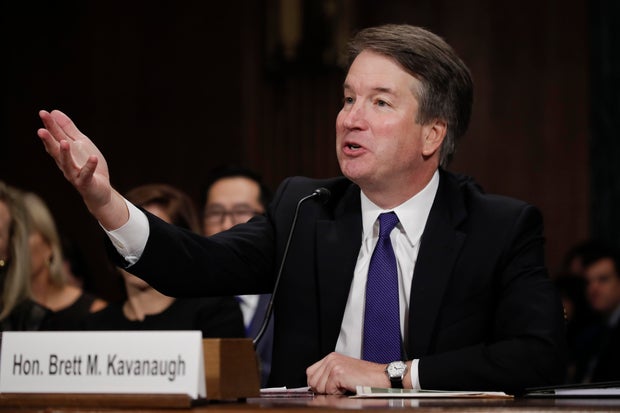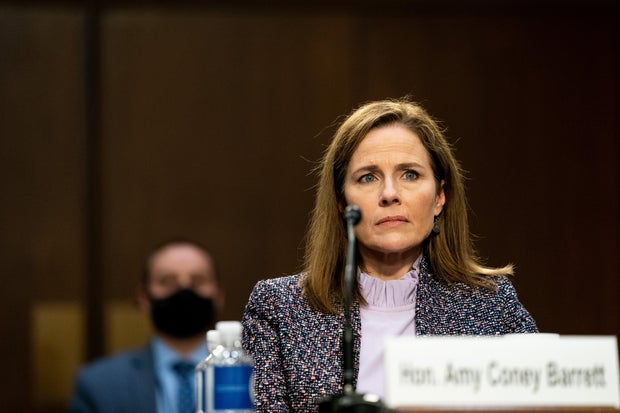Washington- AN draft opinion leaked and released Monday night suggests the Supreme Court could overturn its nearly five-decade-old ruling establishing a constitutional right to abortion, a move that, if final, would be a turning point in the decades-long fight of advocates. of abortion rights to roll back the landmark Roe v. Wade.
Such a decision in the case involving a mississippi abortion law It would come from a Supreme Court that, thanks to three appointments by former President Donald Trump, boasts a 6-3 conservative majority. The draft opinion obtained and published by Politico was written by Justice Samuel Alito, and it is unclear if and which justices would join him.
While the Supreme Court confirmed the authenticity of the document, he emphasized that “it does not represent a decision of the court or the final position of any member on the issues of the case.”
But the appearance of the draft opinion has drawn scrutiny, and in some cases harsh criticism, from the conservative wing of the Supreme Court, and in particular from Justices Neil Gorsuch, Brett Kavanaugh and Amy Coney Barrett. Trump appointed all three to the Supreme Court and, during his confirmation hearings, they fielded multiple questions from skeptical Democrats about his views on Roe v. Wade and whether they would vote to overturn the decision.
Here’s what Republican presidential appointees have said about Supreme Court abortion decisions:
Chief Justice John Roberts
Chuck Kennedy/MCT/Tribune News Service via Getty Images
During his confirmation hearing before the Senate Judiciary Committee in 2005, Roberts discussed the 1992 Planned Parenthood v. Casey, who reaffirmed Roe’s central position and said that states cannot unduly burden abortion rights prior to fetal viability.
“One way to look at it is that Casey’s decision itself, which applied the principles of stare decisis to Roe v. Wade, is itself a court precedent, entitled to be respected under the principles of stare decisis,” he said at the time. . “And that would be the body of law that any judge facing a matter under his care would start with, not simply the decision in Roe v. Wade, but the reaffirmation of him in the decision of Casey”.
Roberts reiterated his commitment to the doctrine of stare decisis, or fidelity to precedent, in a 2020 opinion, joining four liberal justices in nullify a Louisiana measure which required doctors performing abortions to have admitting privileges at nearby hospitals.
“The legal doctrine of stare decisis requires that, in the absence of special circumstances, we treat similar cases in the same manner. The Louisiana law imposes a burden on access to abortion as severe as that imposed by the Texas law, for the same reasons. Therefore, the Louisiana law cannot stand under our precedents,” he wrote.
Judge Clarence Thomas
ERIN SCHAFF/POOL/AFP via Getty Images
Thomas hasn’t been shy about his views on previous Supreme Court decisions on abortion, and during oral arguments in the Mississippi court fight involving a law banning abortions after 15 weeks. , pointed out that the right to abortion does not appear expressly in the Constitution.
“I understand we’re talking about abortion here, but what’s confusing is that if we were talking about the Second Amendment, I know exactly what we’re talking about. If we’re talking about the Fourth Amendment, I know what we’re talking about because it’s written. It’s there,” he said. “What specifically is the right here that we’re talking about?”
Thomas went further in a dissenting opinion to the Supreme Court’s decision on Louisiana’s abortion law.
The court’s previous decisions on abortion, he wrote, “created the right to abortion out of thin air, without an iota of support from the text of the Constitution. Our precedents on abortion are gravely flawed and must be overturned.”
Judge Samuel Alito
fake images
During his 2006 confirmation hearing before the Judiciary Committee, Alito called Roe an “important Supreme Court precedent” that had been repeatedly upheld but challenged at all levels of the courts.
“The Supreme Court has upheld the decision, sometimes on the merits, sometimes in Casey based on stare decisis, and I think when a decision is challenged and upheld, that strengthens its value as stare decisis,” he said.
Justice Neil Gorsuch
Ricky Carioti/The Washington Post via Getty Images
Gorsuch’s comments to the Judiciary panel during his 2017 confirmation hearing echoed Alito’s. He then told the senators that “all precedent of the United States Supreme Court deserves the respect of precedent, which is quite a lot. It is the anchor of the law. It is the starting point for a judge.”
Speaking of Roe, Gorsuch said, “Reliance interest considerations are important there, and all the other factors that go into analyzing precedent have to be considered. It’s US Supreme Court precedent. It was reaffirmed in Casey in 1992 and in various other cases. So a good judge will regard it as a precedent of the U.S. Supreme Court worthy of precedent treatment like any other.”
Judge Brett Kavanaugh
JIM BOURG/Getty Images
Nominated to replace Justice Anthony Kennedy, considered the deciding vote of the Supreme Court, the future of Roe v. Wade was a key topic during Kavanaugh’s confirmation hearings.
He told the Judiciary Committee that Roe is “established as a precedent” that “is entitled to respect under the principles of stare decisis.”
“One of the important things to note about Roe v. Wade is that it has been reaffirmed many times over the last 45 years, as you know, and most prominently, most importantly, it was reaffirmed in Planned Parenthood v. Casey in 1992. , ” he said. “I know that when that case came up, the Supreme Court didn’t just uphold it in passing. The court specifically looked at all the stare decisis factors in considering whether to overturn it, and the joint opinion of Justice Kennedy, Justice O’Connor, and Justice Souter They looked carefully at those factors.
Kavanaugh’s views on Roe were crucial in winning the support of Sen. Susan Collins of Maine, a Republican who supports abortion rights. When Collins announced his support for Kavanaugh’s nomination in 2018, he said he is the “first Supreme Court nominee to express the view that precedent is not merely practice and tradition, but is rooted in Article III of our Constitution”.
“He believes that precedent ‘is not just judicial policy … it is constitutionally mandated to heed and heed the rules of precedent,'” he said nearly four years ago on the Senate floor. “In other words, precedent is not a goal or an aspiration; it is a constitutional principle that must be followed except in the most extraordinary circumstances.”
But following Politico’s report indicating that Kavanaugh and Gorsuch had voted to override Roe, Collins said that if the draft opinion is the final decision and the report is accurate, “it would be completely inconsistent with what Justices Gorsuch and Kavanaugh said.” at their hearings and at our meetings in my office.
Judge Amy Coney Barrett
/ fake images
Barrett, like other justices before her, declined to take a position on whether Roe decided correctly, but did refer to the concept of “super precedents,” which she defined as “cases that are so well resolved that no political actor or people put serious pressure on them to be annulled.
Barrett told the Judiciary Committee that the questions he was answering about Roe indicate the decision “doesn’t fall into that category” of super-precedents, noting that scholars “across the spectrum say that doesn’t mean Roe should be overturned, but descriptively it means that it is not a case that everyone has accepted”.

